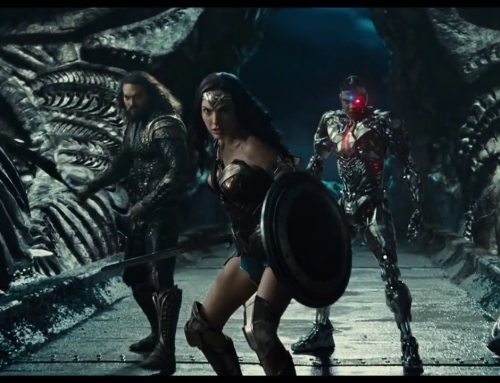Gary Johnson, the former Republican Governor of New Mexico and the third party candidate for the Libertarian Party, will be hosting a town hall meeting on Wednesday, June 22, 2016, on CNN to express the importance of his presidential campaign. Johnson is the only non-major party candidate that will be on the ballot in all 50 states, including Washington D.C.
Johnson was nominated by the Libertarian Party to run for president in 2012, as well. Johnson failed to make an impact and was arguably irrelevant. However, Johnson planted a seed, capturing more than a million votes or one percent of the general electorate.
There is a great deal of importance for Johnson to hit that five percent threshold and to make a giant leap toward breaking up the two-party stronghold. Johnson and the Libertarian Party fell short of seizing five percent of the popular vote needed for the party to be able to receive federal funding. It would also add the U.S. to the long list of Democratic countries with three major parties, such as Canada, France, Germany, Denmark, the United Kingdom and more.
The latest polls from Fox News and Morning Consult has Libertarian Johnson coming in at 10 percent and rising. A small number that may once again appear irrelevant, however, if five polls have Johnson at 15 percent or higher, the Libertarian presidential nominee will qualify for the general election debates with the heavyweights; Hillary Clinton and Donald Trump.
The long-awaited third party Libertarian nominee gained momentum among the general electorate when the two major parties secured their historically disliked nominees. Particularly, GOP members of the House of Representatives were repulsed by Trump’s constantly wild and arguably racist remarks throughout his campaign.
Mitt Romney recently told CNN’s Wolf Blitzer in an interview that Trump does not have his support and would not rule out a Libertarian vote come November, and he is far from alone. In “The Situation Room” interview, Romney said this:
“Well, I think he was in some respects correct when he said, if I went on Fifth Avenue and I shot someone, people would still support me. But I think he has calculated that he could get support even if he shot someone, but if he released his taxes, he would lose support. So there’s something in those taxes that’s even worse than shooting someone on Fifth Avenue. And that, I think, suggests that there could be all sorts of things that could be very, very troubling there.”
Romney continued to say that he is going to look at what Johnson has to say. He stated that he was a giant fan of Johnson’s running mate, Bill Weld the 68th Governor of the Commonwealth of Massachusetts. Romney outright stated he would not hesitate to vote for the Libertarian Party if Weld’s name was at the top of the ticket.
So what exactly is on the résumé of Weld that earned the highest respect of the proceeding 70th Governor of the Commonwealth of Massachusetts, Mitt Romney?
Well, for starters, Weld served as a federal prosecutor for seven years under the Reagan administration, where he won 110 out of the 111 cases put on his desk. In other words, 99.1 percent of his cases; but that is just a little anecdote for Johnson’s running mate.
What captured the respect of the 2012 presidential nominee, Mitt Romney, was the work Weld did as Governor. An opportunity that was available due to the resignation of the longest serving, 65th and 67th Governor of Mass., Mike Dukakis, who was the 1988 Democratic nominee for president.
When Weld came to office in 1990, he became the first Republican to win the gubernatorial election in Mass. since 1970, by barely evading defeat to the Democratic opponent, John Silber, the seventh president of Boston University. He captured a mere two-point lead or a 51 percent victory and from there it would not take long for Weld to make an impression nationally.
When he first took the governor’s office, he inherited the highest unemployment rate among the 11 industrialized states. An obstacle he was quick to hurdle.
As his first term as governor neared an end and the 1994 election season revved up, Weld and his state had done a complete 180. The state unemployment was the lowest nationally in comparison to being ranked highest three years earlier.
In 1992, the “Wall Street Journal” ranked Weld the most fiscally conservative governor in the country. A title that Governor Johnson would soon obtain for himself.
The momentum that built up from the handful of tax cuts, including the phase-out of a long-term along capital gains tax, along with such a dramatic employment feat such as that, would carry over to the 1994 election. No upset would be needed this time around. Weld won all but seven cities against Mark Roosevelt.
It was a landslide victory over the Democratic opponent, Roosevelt, the former state legislator and career lobbyist. The loss would end Roosevelt’s time in the political arena, send him into a classroom, and later become a college professor.
With Johnson’s tenure résumé as impressive, if not, more so than his running mate’s, why is it that Romney is reluctant to support Johnson outright? Romney is a Tea Party supporter which may be a problem due to the subtle differences between Johnson and the Tea Party.
In an interview with ReasonTV, Johnson said this about how the two differ: “My only differences is..uh..drug policy, marriage equality, military intervention…immigration. (They) want to build a fence across the wall and abortion.” Johnson continued, “Those are not small issues.”
The rhetoric of Johnson’s campaign is, “Fiscally conservative, socially liberal.” Meaning Johnson’s libertarian core principles are 100 percent conservative when it comes to shrinking government programs, lower taxes, eliminate wasteful spending. Weld said that any part of government could be cut by at least 20 percent.
Where his beliefs vastly differ from that of the Tea Party and the GOP, is that Johnson believes global warming is real, despite it there being snow during winter. Just as world hunger is real, despite people eating today.
“I do think I am representative of Republican thought,” Johnson has said about his core beliefs, stating that he thinks that majority of Americans think like him and are Libertarians and are not aware of it. Is Johnson right? After all, many will argue until the death that the Founding Fathers were, in fact, Libertarians.
Though Johnson’s definition of his Libertarian views are based on being “fiscally conservative, socially liberal.” It can be the best of both worlds, depending on how one chooses to look at it. Esquire called him the sanest person running for president in the 2016 election.
The rise of both the Tea Party and the left pulling progressives has demolished any trace of moderates of either party. It has divided the country “into two families,” Johnson says, and forces them to choose. For that reason, there carries a weight of importance on Johnson and the Libertarian Party to get to 15 percent.
Statistically speaking, America is more polarized and split than any time in history going back 151 years to the Civil War. As of now, the United States of America, a country that proudly defines itself by its freedom and democracy, is a nation run by plutocracy, with a mere illusion and a distorted view through the looking glass of freedom and democracy.
Choosing between option A or B is not free will. Picking the lesser of two evils is not a democracy. A two party system is a philosophical mockery dating back to the early writings of Descartes.
In the words of Miguel de Cervantes’ Don Quixote, the most studied and timeless fictional character in history, “Insanity may be madness, but the maddest of all is to see life as it is and not as it should be.”
Opinion by Aaron DeGeorge
Edited by Cathy Milne and Jeanette Smith
Sources:
CNN: The Situation Room | Transcripts – Mitt Romney
GaryJohnson2016: Issues
Post Libertarian: The Five Percent Threshold
Image Courtesy of Gage Skidmore’s Flickr Page – Creative Commons License








